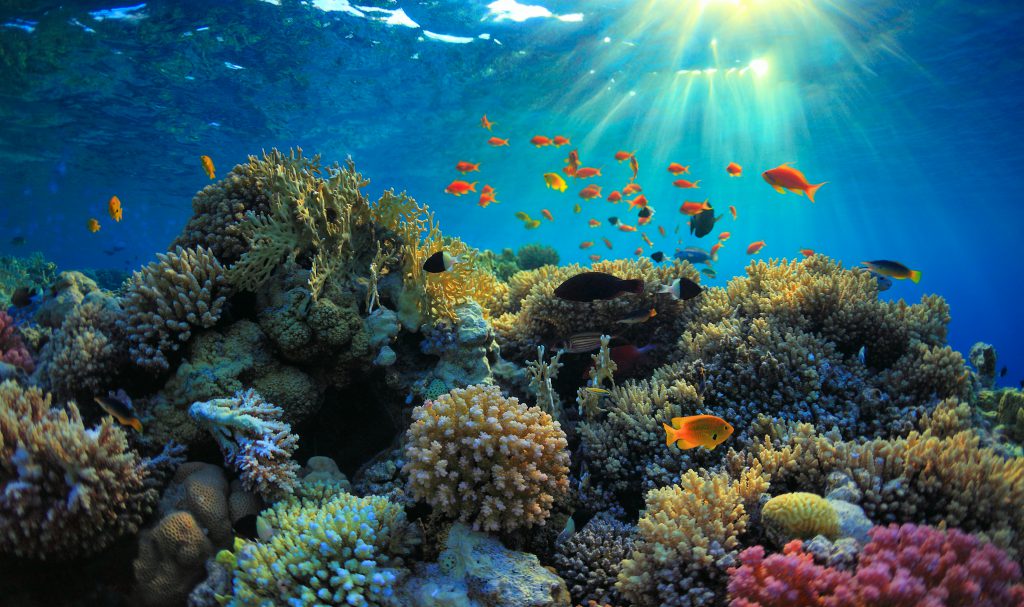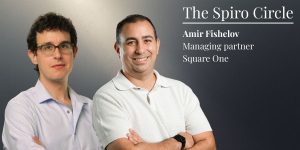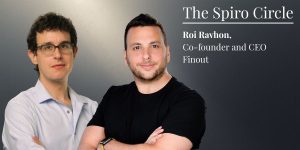Contributors
A “blue ocean” is every entrepreneur’s dream. One of the very first strategies learned in business school is the “Blue Ocean Strategy” – A “sea” that is competition-free, and an analogy for undiscovered markets. In the Alternative Protein industry, there is a blue ocean, literally – The field of sustainable alternative seafood.
Since 1993, when the first corn schnitzel launched in the Israeli market, until today, the supply and variety of meat alternatives have grown substantially. However, alternatives for fish and other seafood are nowhere to be found in the Israeli market, all the more so, in wide and accessible distribution. While the potential and importance of the alternative seafood market are obvious, it is unfortunately underdeveloped and unappreciated worldwide.
It’s Not All Blue Though
Oceans and seas look like powerful elements, that do not give off a “delicate” association, but in fact, under the surface, exists a whole gentle, complex, and fragile ecosystem – that forms the basis of our existence on earth.
Rehabilitation and restoration of the marine ecosystem is one of the 17 goals of the UN sustainability program (SDGs). The global fishing industry poses a serious threat to the existence of the delicate ecosystem: Firstly, we are overfishing the ocean. According to the Food and Agriculture Organization of the UN, 30% of fish species are fished at a rate that exceeds their proliferation rate, and an additional 60% are fished at the maximum rate relative to their proliferation rate. That means that the underwater sea-life population is getting smaller and smaller every day.
Secondly, modern fishing methods are the second largest threat to the existence of the ecosystem, after global warming. These methods damage coral reefs that make up the natural habitat of about 25% of fish, even though they make up less than 0.1% of the ocean’s floor/bottom area. Restoration of these reefs can take decades. In addition, over 40% of global fishing is by-catch, that is dolphins, sea turtles, birds, and other non-edible species that are caught in nets and usually do not survive.

The fishing industry is not only harming the underwater ecosystem but also accelerating global warming. Huge fishing nets that trail on the ocean floor damage algae, sediments, and micro-organisms that store greenhouse gases – which are emitted, once damaged by the nets. For comparison purposes, the global fishing industry emits as much greenhouse gas as the entire global aviation industry.
In fact, the oceans are our global cooling system. Researchers estimate that if the level of pollution and acidity in the water, and damage to the habitats, continue to rise, and will not be repaired and prospered, by 2048 there will be no fish left in the oceans.
Therefore, there is great urgency and importance to find solutions (and substitutes) for seafood, in order to maintain a functioning underwater ecosystem.
Jumping Into the Water
Today, about 3 billion people worldwide rely on fish and seafood as their main source of protein. According to data from The Good Food Institute (GFI), which operates to promote regulation, entrepreneurship and research in the field of Alternative Protein worldwide, the demand for seafood in 2030 is expected to increase by 30% compared to 2010. Only in 2020, U.S. sales of plant-based foods increased by 27% to $7 billion, of which $1.4 billion were in the meat substitutes category. In this category, fish and seafood alternatives represent only $12 million.
In the last year, we have seen investors around the world start to route bigger funds and make more investments in the field. Still, in 2020, only $90 million were invested in seafood alternatives. In the first half of 2021, a record-breaking $116 million were invested, of which $70 million were in the field of cultured fish alternatives (the rest being in plant-based), but there were only 11 deals overall.
Today, you can find very few fish alternative producers around the world that offer products that mimic minced fish meat, for example, fish “fingers”. But these products do not quite meet the need, as 80% of the fish is consumed as a whole piece or cut, rather than as minced meat.

Diving Deeper
Fish and other sea creatures, represent about 20% of the meat consumed worldwide, yet in the field of alternative protein, this category reflects a small friction – therefore, the potential is huge.
In Israel, a handful of start-up companies recognized the great opportunity that lies in the field and are in a hurry to get there before everyone else. For example, Plantish is developing a salmon fillet, based on legumes protein. The company is working on an innovative technology that enables the creation of whole cut fish fillets, while also considering the product functionality of frying and roasting.
The field of cultured fish has also been getting new and refreshing attention in Israel. Just recently, “Forsea” began creating a unique technology that allows the creation of the three edible tissues – muscle, fat and connective tissue – in one structure (aggregate), and not separately. By that, the company is expected to significantly reduce cultured fish production costs. The company chose to apply its technology in the field both because of the great potential inherent in it, and due to the ecological urgency to find and create seafood sustainable alternatives.
The big corporations do not remain indifferent and also want in. At the end of 2021, for the very first time, Nestlé Israel developed and launched the “Vuna” – a product for the institutional market (restaurants or catering companies only, excluding the private market). A plant-based tuna fish alternative. Although the product can be found only in the “Landver” chain so far, Nestlé’s new ground-breaking product got to bring for the first time a fish alternative product to the Israeli institutional market and no less important – pride for the Israeli FoodTech industry worldwide.
Unlike terrestrial animal-based food products, the range of marine animal-based products is huge. The number of marine species and the different types of food based on them around the world – surpasses all imagination, making for endless innovation opportunities. This allows entrepreneurs to easily find new niches and geographical locations around the world to dive into.

However, there are still plenty more challenges to overcome. For example, the development of ingredients for the various alternatives such as plant-based proteins (from algae or laboratory micro-organisms), and of marine flavors and aromas, is required. Furthermore, technologies that can create complex texturization, like that of the Salmon or other types of fish and marine animals, are much needed. All of this is important in making the alternative products most similar to the original “product”.
At the other end of the scale, the field of cultured seafood, despite relying on existing studies from the field of cultured meat, has yet to grow in research and development of ingredients, growing environments and of course, new products. In conclusion, the ocean is blue, deep and has many more opportunities to offer – and we should take advantage of them before we run out of oxygen.
Ido Eliashar is an entrepreneur in the field of Alternative Protein and an Advisory Board Member at Vegan-Friendly.Org. Previously, as part of his role as Business Development and Commercial Relations Manager at the organization, he was responsible for launching and introducing innovative food products to the Israeli market. Founder of the pioneer entrepreneur’s community “Health & FoodTech TLV”.
Ido Eliashar is an entrepreneur in the field of Alternative Protein and an Advisory Board Member at Vegan-Friendly.Org. Previously, as part of his role as Business Development and Commercial Relations Manager at the organization, he was responsible for launching and introducing innovative food products to the Israeli market. Founder of the pioneer entrepreneur’s community “Health & FoodTech TLV”.
Forbes Israel Contributors are independent writers that were individually picked by Forbes staff. The writers are experts in their field and they provide professional commentary and analysis of current events. The content is unsponsored





